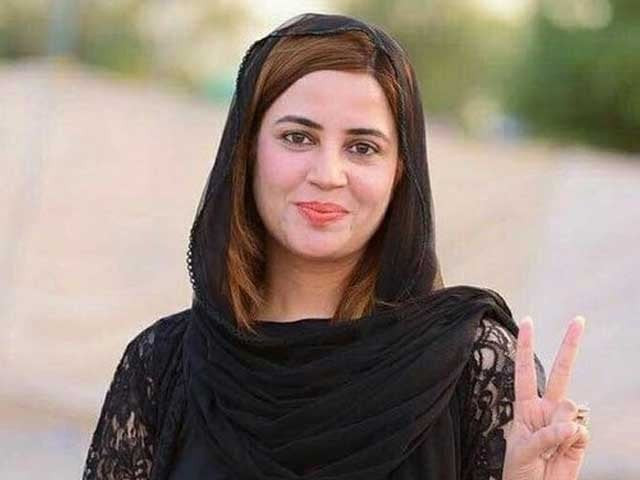Rising internal migration next crisis for Pakistan
State climate change minister says erratic weather forcing many to move from villages to cities

Climate Change Minister Zartaj Gul. PHOTO: EXPRESS/FILE
This was stated by State Minister for Climate Change, Zartaj Gul on Monday during a seminar on ‘Climate Change and Migrations in South Asia’. The seminar had been organised by the Sustainable Development Policy Institute (SDPI) in Islamabad.
Gul She said that a large number of people have already started migrating from climate prone areas of south Punjab and south Khyber-Pakhtunkhwa (K-P), such as Muzaffargarh and Dera Ismail Khan respectively, to nearby cities. This, in turn, is putting immense pressure on urban resources.
“This uncontrolled migration from rural to urban areas is causing illegal urbanisation,” she said, adding that there is a need for constant policy measures to cope with and manage the challenge of migration.
Gul also highlighted other factors for migration such as the conflicts and law and order situation. In this regard, she pointed to the mass migration owing to militancy and subsequent military operations in the erstwhile federally administered tribal areas (Fata).
She stressed that vulnerable rural communities and conflict-prone areas should be provided with facilities found in urban settlements while respecting their local norms, values and traditions.
SDPI Executive Director Dr Abid Suleri said migration cannot be attributed only to climate change, as there are several push-and-pull factors which force communities to migrate from one place to another.
“Migration is a historical and global phenomenon, as people migrate due to lack of necessities such as food, water, health and education facilities and better opportunities of livelihoods at the destination, such as employment, availability of basic health and education facilities,” he said, adding that push factors of migration, such as lack of food and water, are mostly caused by the negative impacts of climate change.
However, thorough research requires mapping all the factors responsible for migration. Dr Suleri said the SDPI study on migration shows that the level of resilience of the household, as well as the availability of alternative livelihood strategies, determines a family’s migration decisions.
He said that there is a need to minimise the push factors of migration through the provision of basic facilities and livelihood opportunities.
Stressing the need for better management of migration, Dr Suleri called upon the government to have a comprehensive national migration policy.
International Centre for Migration Policy Development (ICMPD) Country Director Raana Rahim said that in this globalised world migration is expecting to increase rather than decrease. She said migration phenomenon, particularly climate-induced movements, need to be understood clearly by all stakeholders, which can help formulate better policies to manage migration across the region. She stressed the need for more evidence-based research on climate-induced migration for informed decision making.
SDPI Associate Research Fellow Kashif Salik said that migration can be looked like an opportunity in terms of the economy for the origin country, such as remittances, employment and wellbeing, whereas it can also be looked at as a burden to the economy of the destination country, such as unemployment and urban poverty.
Also, migration in some cases is considered a threat to the society in terms of security, religious cohesion, social and cultural integration. He said there is little evidence available that climate change is directly responsible for migration.
However, the impact of climate events has a large impact on the agriculture sector that may indirectly affect agricultural income, which several populations depend on.
Salik highlighted that migration movement critically strengthen the resilience of migrant families in terms of income, food, education etc. in Pakistan. He also highlighted gaps in policies and urge the government to develop a comprehensive migration policy which can better manage the migration.
Published in The Express Tribune, November 26th, 2019.



















COMMENTS
Comments are moderated and generally will be posted if they are on-topic and not abusive.
For more information, please see our Comments FAQ